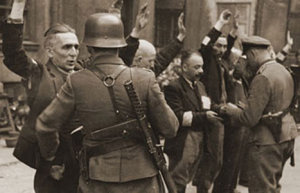The Passive-Aggressive Freedom-Lover’s Distibuted Book Club #2: Terence Irwin, Preface to Plato’s Ethics, vii-x
As I was saying the other day, I've been thinking that my readers might be interested in some of the topics that Terence Irwin raises in his book, Plato’s Ethics. The book is published by Oxford University Press. I thought you might enjoy thinking about some material which I've quoted here for educational purposes under principles of fair use, such as the material in the Preface, where he sets out his plans for the book and its relation to other work on Plato’s ethical theory. Thus:
Preface
Anyone who is interested in the contribution of Aristotle, Hume, or Kant to moral philosophy can turn to at least one book in English that tries to give a fairly full and detailed account of the philosopher’s main ethical views. The same cannot be said about Plato’s ethics. Admittedly, the questions that face the interpreter of Plato are different from those that face us in interpreting these other philosophers; still, I believe that what has been done for their ethical views can be done for Plato’s ethical views. That is what I have tried to do in this book. It is not comprehensive, since it leaves out several important aspects of Plato’s ethics, but it focusses on what I take to be central questions.
I have tried to present Plato’s reasons for holding his ethical views, his reasons for changing his mind about some of them, the content and implications of his views, and some reasons that might incline us towards accepting or rejecting them. With these aims in mind, I hav traced the development of Plato’s views in the earlier dialogues, laying special emphasis on the defence and (as I claim) re-statement of Socratic ethics in the Gorgias. I have devoted a large part of the book to the examination of Plato’s most important contribution to moral theory, in the main argument of the Republic. I have added a very brief discussion of some aspects of the later dialogues, to show how they throw further light on questions raised in the Republic.
A proper understanding of Plato’s moral philosophy requires some understanding of his views in moral psychology, epistemology, and metaphysics (the same is true, of course, of the other philosophers I mentioned), and so I have discussed these areas of his philosophy as well. Socratic method and Socratic ethics help to explain each other, and we can see the same sort of mutually explanatory connexions between Plato’s metaphysics and epistemology (growing out of his reflexions on Socratic method) and his ethical theory. My discussion of some features of Plato’s metaphysics and epistemology is evidently not a full treatment, but I hope it describes an aspect of the Theory of Recollection and the Theory of Forms that we may not appreciate sufficiently if we study these doctrines without reference to Plato’s ethics. The different threads in my argument combine in the discussion of the Sun, Line, and Cave in the Republic.
These claims about Plato’s development require a decision about the nature of Plato’s Socratic dialogues, and, more generally, about Plato’s relation to the historical Socrates. I have presented the early dialogues as embodying both the views of the historical Socrates and the views Plato held when he wrote these dialogues. This view of the early dialogues is defended briefly in Chapter 1.
My attempt to attribute an ethical theory to Plato may suggest to some readers that I have misconceived the character of the dialogues altogether. I have ascribed a relatively systematic body of doctrines to Plato on the strength of the dialogues; but some readers strongly reject this
doctrinalview of the dialogues. I acknowledge an element of truth in those approaches that emphasize Plato’s distance from the characters in his dialogues; still, I believe doctrinal view is broadly correct, and that it finds strong support both in Aristotle’s comments on Plato and in a fair and scrupulous examination of the dialogues. It seems to me that a doctrinal approach will be most convincing if it allows us to attribute a significant philosophical position to Plato; and so my main aim is to describe the position that he holds.I began this book intending it to be a second edition of Plato’s Moral Theory. The Press agreed to a moderate increase in the length of the earlier book, in the hope that a new edition would (1) offer a less one-sided presentation of some controversial issues than I gave in the earlier book; (2) expound the main issues less cryptically, with the hope of making the book more accessible to readers who are not specialized students of Plato; (3) include some discussion of the later dialogues; and (4) take account of what has been written on this topic since the publication of the earlier book. The constraints of lengt have meant that the first two aims have taken priority over the last two.
Recent discussion has influenced my decisions about the relative length of different parts of the book. Many critics of the earlierbook focussed on the chapters that dealt with the Socratic dialogues. Moreover, these dialogues have been intensively studied in recent years (largely through the influence of Gregory Vlastos); indeed, they seem to have been discussed more intensively than the Republic has been. This trend has been salutary in many ways, but I have not followed it. Much of the increase in length of this book over PMT results from a fuller discussion of the Republic. It seems to me that the changes Plato introduces in the Republic are–as far as concerns the topics of this book–changes for the better. If PMT made it difficult to see my comparative evaluation of the Socratic dialogues and the Republic, I hope this book will make my view clearer.
In this book I have added two short chapters on the Philebus, Statesman, and Laws. They are by no means a full treatment of the ethical argument of these complex and rewarding dialogues. I confine myself to some suggestions about what the late dialogues add to Plato’s views on some of the questions that I have explored in the early and middle dialogues.
To make room for the main text, I have (with some regret) deleted or curtailed most of the more discursive and argumentative footnotes I had written for this book. Many of the notes give bare references or the briefest indication of my reasons for taking a particular view; they do not attempt either a full report or a full discussion of the different views expressed in the secondary literature. On some points, then, the notes and bibliography are less full than those in PMT. In a few cases I have simply referred to one of the longer notes in PMT. The length of the notes has been determined, not by the importance of different issues for the understanding of Plato, but by their importance for the argument of this book.
Since the book is meant to be accessible to people who are beginning to thnk seriously about Plato’s ethics, I have not emphasized the differences between it and PMT. After writing an appendix describing the main objections raised against PMT, and the ways I now want to accept or answer these objections, I decided not to include the appendix in this book, since it would probably be more interesting to me than to most of my readers. I do not mean, however, to seem unappreciative of the helpful suggestions and objections of the many critics–friendly, hostile, or neutal–who have taken the trouble to explain what they thought was wrong with PMT. I am grateful for the stimulus that these criticisms have given me to think again about Plato’s ethics; even though I have probably learnt less han I ought to. I am sure that the present book has been improved by the criticisms of PMT, whether or not I have accepted them.
Though I began with the idea of a second edition of PMT, it has turned out a bit differently. None of hte text of the earlier book reappears in this book, and so it seemed reasonable to present this as a new book rather than as a second edition of an old book. In one important way, however, it is more like a second edition. I have not tried to achieve the degree of distance from PMT that would be necessary for a fresh examination of the primary texts and the secondary literature; instead, I have re-read the primary texts, and surveyed the secondary literature, in light of the earlier book.
In the notes I have tried to give some idea of the main contributions to discussion that have appeared since the earlier book was published. I have learnt a great deal from recent work, especially from the books of Julia Annas, Richard Kraut, and Gregory Vlastos, and from papers by Terry Penner, John Cooper, and Nicholas White. I have also indicated some new debts to older works that I have read or re-read in the course of writing this book. I had already used (for instance) Grote, Moreau, Joseph, and Murphy for the earlier book, but in re-reading them I found many suggestive remarks that had not made the proper impact on me before.
The task of working out some second thoughts on Plato’s ethics has been both more complicated and more interesting than I had expected it to be, and I am very pleased to be able to thank those who have helped me in it. The Delegates and staff of Oxford University Press have always been helpful and encouraging, by publishing the earlier book, by keeping itin print,and by agreeing to an extensive revision; I have especially benefited from Angela Blackburn’s advice and support at different stages. In 1990–91 I was fortunate enough to have a sabbatical leave from Cornell University and a fellowship from the National Endowment for the Humanities. My views have developed in response to questions by undergraduate and graduate students at Cornell over several years, most recently in a seminar in the autumn of 1991. I have learnt so much from collegues in the Sage School of Philosophy that it is difficult to keep track of specific debts, but inthis case I am especially conscious of having learnt from Sydney Shoemaker, David Lyons, Harold Hodes, Nicholas Sturgeon, and Allen Wood. Jennifer Whiting and Susan Sauvé Meyer made useful comments and suggestions on particular points. Daniel Devereux and David Brink gave me detailed and searching criticisms of a draft of the whole book, and I have often benefited from their suggestions. My ideas on Plato have developed on many points as a result of Gail Fine’s work. She is responsible for so many changes that I cannot exclude the possibility that she has led me into new errors, but I am fairly confident that almost all the changes are improvements. Several drafts of this book have been benefited, in large and small ways, from her vigorous castigation and continual encouragement.
Finally, I must express my gratitude for the help of two colleagues and friends who have recently died. Michael Woods encouraged me in my work on Plato ever since 1974 when he read a draft of Plato’s Moral Theory and invited me to contribute a volume on the Gorgias to the Clarendon Plato Series, which he edited until his death in 1993. I benefited from his perceptive advice and comments on my efforts on the Gorgias, and on many other topics in Greek philosophy. In 1971–72 Gregory Vlastos supervised my dissertation on Plato’s ethics. Shortly before his death in 1991 he began to write a reply to my review of his book on Socrates. In the intervening years he was a constant, severe, sympathetic, and constructive critic of my views on Socrates and Plato. By precept and example, he, more than any other single person, has made the study of Socratic and Platonic ethics the flourishing activity that it is today. I would especially like to have known what he thought about my latest effort, in this book, to carry on a discussion with him that has been an important part of my intellectual life for over twenty years. I know I wouldn’t have convinced him, and I know his criticisms wouldhave thrown still further light on the questions.
T.H.I.
Ithaca, New York
September 1994–Terence Irwin, Plato’s Ethics (Oxford University Press, 1995), vii–x



